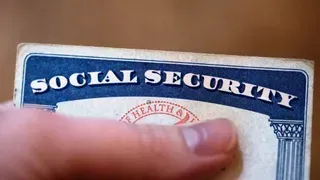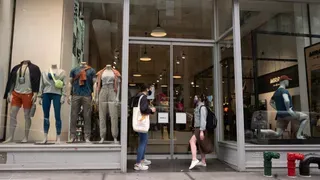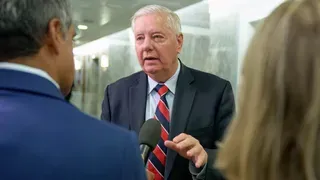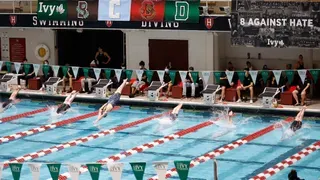October 20, 2008
Lesbian, GLBT Equality Activist Ordained as Methodist Ministers
Kilian Melloy READ TIME: 3 MIN.
In what progressive Methodists are calling an "extraordinary ordination," two ministerial candidates have been granted clerical authority, despite having been previously refused ordination because one is a lesbian married to her female spouse, and the other supports GLBT equality.
The Baltimore Sun carried the story in Oct. 20, detailing how the ministers were ordained in Baltimore in a historic action said to be the first of its kind.
Church rules prevent the ministers, both women, from presiding over their own congregations, but the newly ordained ministers were hopeful about being assigned other jobs within the church, the Baltimore Sun said--or, possibly, becoming ministers in more GLBT-friendly faiths.
The United Methodist Church Book of Discipline, which contains the rules for the denomination, singles out homosexual relationships as "incompatible with Christian teaching," and says that "self-avowed practicing homosexuals" are not eligible for ordination because Methodist clergy are "required to maintain the highest standards of holy living," suggesting that in the eyes of the church, committed relationships between gay and lesbian adults do not meet those standards.
When Rev. Annie Britton married her wife in Mass. in 2005, she was automatically excluded from consideration under the rules.
However, having had pastoral authority conferred upon her by means of the "extraordinary ordination," Rev. Britton is now equal, in theory, to other Methodist clergy.
The Baltimore Sun article quoted Britton as saying, "This day is historic."
Added Britton, "We have all chosen to live the future now."
Also ordained was Rev. Jenna Zirbel, whose recommendation to be ordained, despite, being unanimous, was blocked in 2007 by the Iowa Annual Conference.
Zirbel, quoted in the Baltimore Sun article, attributed the blocking of her ordination to "my full support for gay rights and my commitment to all marginalized people."
The Sun said that the "extraordinary ordinations" were the work of a smaller faction of Methodists called Church Within A Church, a group that works to influence church policy through demonstration.
The ceremony, which took place Oct. 19, occurred at Mount Vernon Place United Methodist church in Baltimore. In attendance were not only Methodists, but also clergy from the Lutherans, Presbyterian, and United Church of Christ (UCC) denominations.
Church Within A Church executive director Rev. Kevin Johnson said, "We are trying to model now what the church will be in the future."
By setting an example "in a manner of fairness, equality and faithfulness," Rev. Johnson and other Church Within A Church members hope to help their denomination "evolve into a Christian church that is fully inclusive."
Rev. Johnson is also gay; he serves as pastor for a California UCC church, the article said.
The article cited Rev. Johnson as saying that the Methodist church is unable to meet the needs of all of its members because of the way gays and lesbians are treated under church rules.
The Sun said that church officials, including Bishop John Schol, were not reachable. However, the article said that according to Mount Vernon Place's pastor, Rev. James Taylor, the bishop had cleared the gathering, though he had not addressed the ordination itself.
Renting church space for events, said the Rev. Taylor, "is a local church matter."
He said there are needs within the United Methodist church that are not being met because of its policies toward gays. His group hopes that Methodists will see his movement meeting those needs "in a manner of fairness, equality and faithfulness," and "evolve into a Christian church that is fully inclusive."
According to Rev. Taylor, the Mount Vernon Place congregation includes many gays and lesbians.
As for ordaining gays and lesbians as clergy, Taylor said, "My personal heart supports it."
The article quoted a retired Methodist bishop, Rev. Susan Morrison, who was of the opinion that while younger Methodists are increasingly in favor if extending full clerical rights to gay and lesbian candidates, Methodists in other countries, where the faith is growing, counterbalance that.
The Episcopalian church has experienced a similar shift, with North American branches becoming more accepting of gay and lesbian members and clergy, whereas African, Asian, and South American branches of the faith have threatened a schism unless the North American chapters "repent."
Another retired bishop, Jesse Dewitt, recounted having witnessed the evolution of the church over his 89 years, coming to accept women in clerical roles and then allow the racial integration of its congregations.
Said Dewitt, "I hope and pray it will not be another generation beyond mine until [full inclusion of gay and lesbian Methodists] will be completed."
Kilian Melloy serves as EDGE Media Network's Associate Arts Editor and Staff Contributor. His professional memberships include the National Lesbian & Gay Journalists Association, the Boston Online Film Critics Association, The Gay and Lesbian Entertainment Critics Association, and the Boston Theater Critics Association's Elliot Norton Awards Committee.







